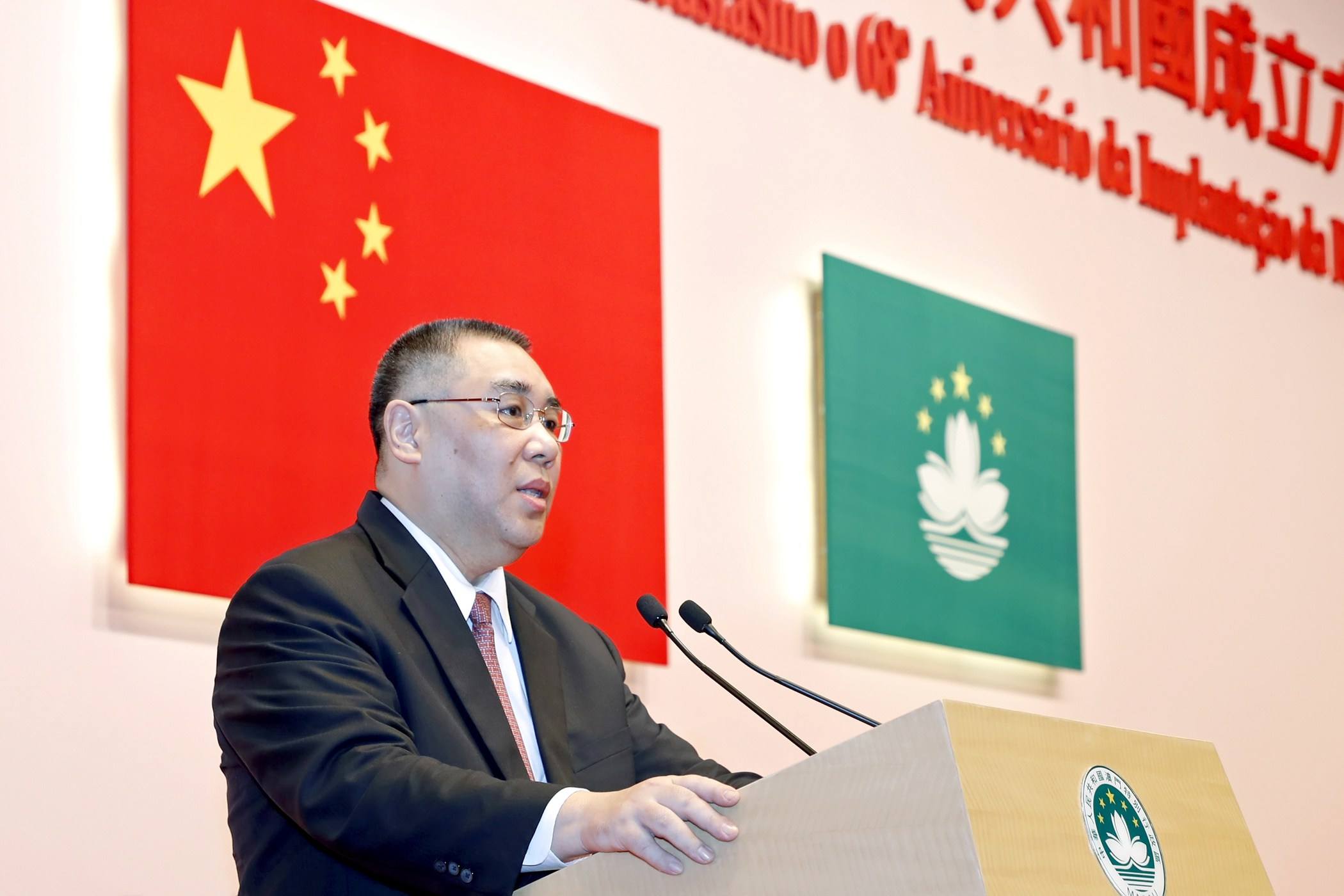Macau to Increase Oversight of Casinos and Junkets Prior to Operator License Renewals
Posted on: November 14, 2017, 01:00h.
Last updated on: November 14, 2017, 04:27h.
Macau is about to embark on a critical two-year renewal period for the gaming market’s six licensed casino operators. But before China’s special administrative region agrees to new terms with those companies, officials say the industry’s laws and regulations will be reviewed, and most likely, strengthened.

In his annual policy address on Tuesday, the region’s top government official, Chief Executive Chui Sai On, revealed that all aspects of the nearly $30 billion annual gambling market will be reconsidered. The goal, according to Chui, is to make sure casino operators are not only playing by the rules, but also working to transform Macau’s market from a gambling-first destination into one catering more to the mass market.
Chui explained that regulations on junket operators, the touring groups that bring high rollers from mainland China to Macau, will also be reconsidered. Chui opined that the review “will perfect the laws and regulations governing the gaming industry.”
SJM Holdings and MGM China’s gaming licenses expire in March of 2020. The four others, Sands China, Wynn Macau, Galaxy Entertainment, and Melco Resorts, are scheduled to expire in June of 2022.
Gaming Oversight
The revelation that more stringent gaming regulations might be on their way to Macau comes as casino revenues are making a strong comeback.
The industry posted its 15th straight monthly gain in October, with gross gambling up more than 19 percent year to date compared to 2016. That follows two years of declines after People’s Republic President Xi Jinping included VIP junket companies under the scope of his “anti-corruption” campaign.
Chui gave few specifics as to which regulatory areas might be strengthened in terms of enforcement, only saying that the application of laws governing the gaming industry will be subject to increased supervision.
However, Chui did reveal that the government plans to seek better IT controls to audit junkets. The VIP groups often sell high-priced travel packages to mainlanders, and once they arrive in Macau, customers receive identical amounts of gaming credits to play with in the tax haven.
Macau authorities recently mandated that ATM machines come with facial recognition technology for use in casinos, and in 2016, banned the practice of proxy (remote) betting via telephone or interactive devices.
This week’s policy address sent the region’s gaming stocks into the red, with the biggest loser coming by way of Melco, down 3.7 percent. MGM fell 1.65 percent, while the others were basically flat, dropping by around 0.3 percent.
Macau Master Plan
Xi’s anti-corruption crusade that pushed gaming revenue down from $45 billion in 2013 to less than $28 billion last year prompted casino operators to look for new ways to keep their floors busy despite reduced VIP traffic. They looked to the mass market, and began developing non-gaming attractions to bring in new travelers.
Chui says the city’s five-year master development plan is focused on “smart tourism to enrich tourists’ experiences.” The chief executive said that’s accomplished by developing more family friendly hotels, including economy options, plus theme parks, shopping centers, and an array of culturally diverse eateries.
No comments yet